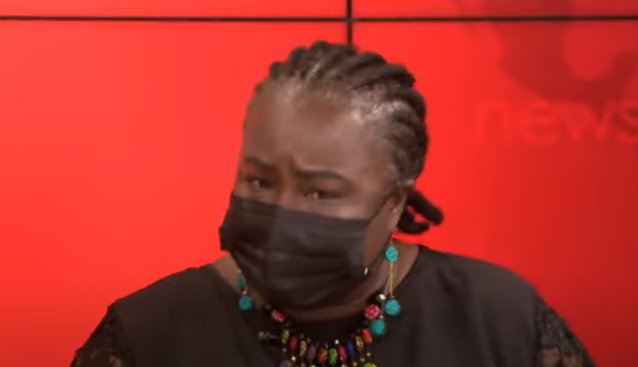Former Dean of the University of Ghana School of Information and Communication Studies, Professor Audrey Gadzekpo, has blamed the absence of laws that explicitly provide for regulation of the media, for the recent arrests of journalists in the country.
Interacting with Newsfile host, Samson Lardy Anyenini, she bemoaned how despite the change in the media landscape, there have been no laws to regulate how the broadcasting media operates.
"The reason we are in this space is that there are no explicit laws governing and regulating the media, particularly the broadcasting media where all these cases come from."
"We are always overtaken by events. We had a changing media landscape. We needed, immediately before we licensed the 684 or so radio stations that have been granted authorization, almost 500 of which are on-air, a law explicitly stating how the terrain should be regulated. So that people who feel aggrieved know clearly where to go for relief. We don't have that," she said on JoyNews on Saturday.
She noted that at the World Radio Day event held on Friday, Professor Amin Alhassan of Ghana Broadcasting Corporation (GBC) pointed out that the law as it stands now, is obsolete.
Her concerns are in relation to the surge in the apprehension of journalists in the country.
Onua TV’s Morning Show host, Blessed Godsbrain Smart, was detained by National Security Operatives after he had been granted bail by the court following his arrest over extortion.
He was detained along with another staff, Eric Dadzie Copperfield, popularly called DJ GH Boy who is also facing charges of abetment to extort.
Not long after, a journalist with Power FM, Oheneba Boamah Bennie, was handed a 14 days jail term for threatening and insulting President Akufo-Addo.
Also, Accra FM’s Bobie Ansah, who accused First Lady, Rebecca Akufo-Addo of theft, was picked up by persons purported to be National Security operatives and has been charged with the publication of false news and offensive conduct.
According to Prof. Gadzekpo, despite numerous promises, successive administrations have failed to provide legislation but rather relied on sections of the law to penalize journalists.
In view of this, she indicated that "it is time to stop making false promises and have laws that regulate."
"If you had a law that spelled sanctions, some of those sanctions could include even shutting down radio stations. So you don't need to put them in jail," she added.
Latest Stories
-
Western Region: NDC youth wing embarks on phase 2 of ‘retail campaign’
16 mins -
Action Chapel International holds annual Impact Convention in November
16 mins -
Jana Foundation urges young women to take up leadership roles
21 mins -
All set for Joy FM Prayer Summit for Peace 2024
32 mins -
Managing Prediabetes with the Help of a Dietitian
51 mins -
Joy FM listeners criticise Achiase Commanding Officer’s election comment
1 hour -
Legal Aid Commission employees threaten strike over poor working conditions
1 hour -
Ghana ranked 7th globally as biggest beneficiary of World Bank funding
1 hour -
IMF board to disburse $360m to Ghana in December after third review
1 hour -
Former Bono Regional NPP organiser donates 13 motorbikes to 12 constituencies
2 hours -
Securities industry: Assets under management estimated at GH¢81.7bn in quarter 3, 2024
2 hours -
Gold Fields Ghana Foundation challenges graduates to maximise benefits of community apprenticeship programme
3 hours -
GBC accuses Deputy Information Minister Sylvester Tetteh of demolishing its bungalow illegally
3 hours -
Boost for education as government commissions 80 projects
4 hours -
NAPO commissions library to honour Atta-Mills’ memory
4 hours

